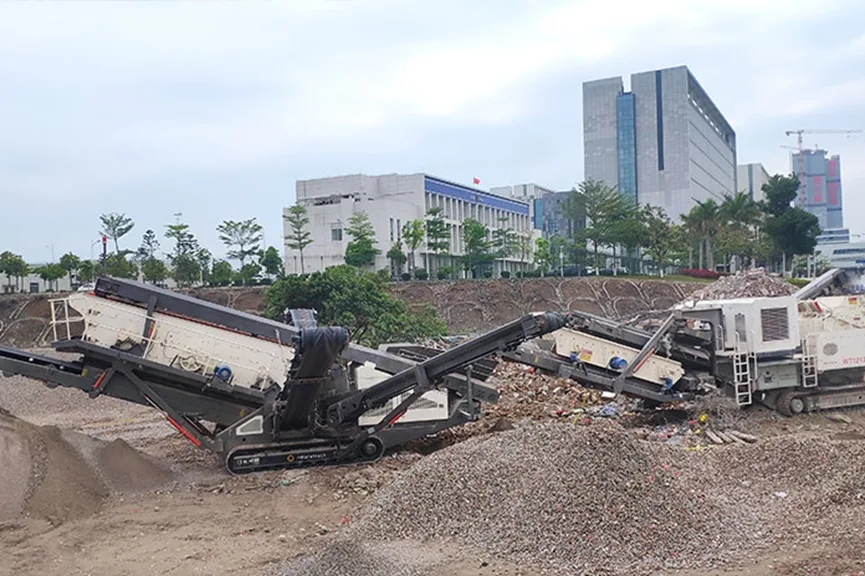With the rapid growth of the construction industry, the demand for high-quality aggregates, such as sand and gravel, is increasing quickly. Aggregates play a vital role in many building materials, whether for roads, bridges, or high-rise buildings. However, as market demand rises, many businesses are focused on how to accelerate aggregate production while maintaining quality.
For companies looking to establish a profitable aggregate processing plant, optimizing production efficiency is key. Here are some practical strategies to help speed up production.
Know the Source and Quality of Aggregates
First, it is important to understand how different sources of aggregates can affect production efficiency. Aggregates typically include sand, crushed stone, and gravel, and the quality and particle size requirements may vary depending on the needs.
Using high-quality raw materials not only improves the final product’s quality but also reduces the workload in subsequent processes. For example, using hard, dense rocks as raw material can reduce the need for excessive crushing, speeding up the overall production process.
Consider the Flexibility of Mobile Crushers
In some projects, the production site is far from the construction site. Mobile crushers are highly flexible in these cases, as they can move quickly on-site and carry out crushing and screening operations directly at the construction location, saving time and transport costs.

Mobile crushers are especially useful in these scenarios:
- Large mining or quarry operations
- Projects with multiple locations
- Urban construction projects
- Remote area projects
- Short-term or temporary projects
By using mobile crushers in these situations, businesses can complete aggregate production on-site, improving efficiency and meeting project deadlines.
Improve Crushing and Screening Efficiency
Crushing and screening are crucial steps in aggregate production. Using the right crushing equipment helps break down large materials into the required size quickly, improving the overall processing efficiency.
The screening stage ensures aggregate uniformity. Modern vibrating screens quickly separate aggregates of the right size, eliminating manual sorting. This automatic screening increases production efficiency and ensures consistent product quality.
Eliminate Unnecessary Steps
Optimizing the production flow and reducing unnecessary steps is another key factor in speeding up aggregate production. Many traditional production lines have redundant processes, such as multiple crushing stages, repeated screening, and long material transport times, all of which lower efficiency.
Today, many businesses design compact production lines where crushing, screening, and conveying processes are closely linked, ensuring smooth material flow between machines, which greatly improves efficiency.
Focus on Environmental and Smart Development
With stricter environmental regulations, aggregate production companies are increasingly focusing on green production. Dust and noise are common issues, and using advanced environmental equipment can help control dust emissions, improve working conditions, and comply with environmental standards.
Moreover, smart management systems are becoming key to speeding up production. By monitoring equipment in real time and analyzing data, businesses can optimize operations, reduce downtime, and improve efficiency.
Conclusion
To accelerate the production of aggregates for construction, businesses need to optimize their production processes and equipment choices while balancing efficiency and environmental considerations. By incorporating flexible mobile crushers, streamlining production steps, and adopting smart management systems, companies can better meet growing market demands.
With increasing environmental requirements, adopting green production methods will be key for future development. We hope these strategies will help make your aggregate production more efficient and sustainable.



